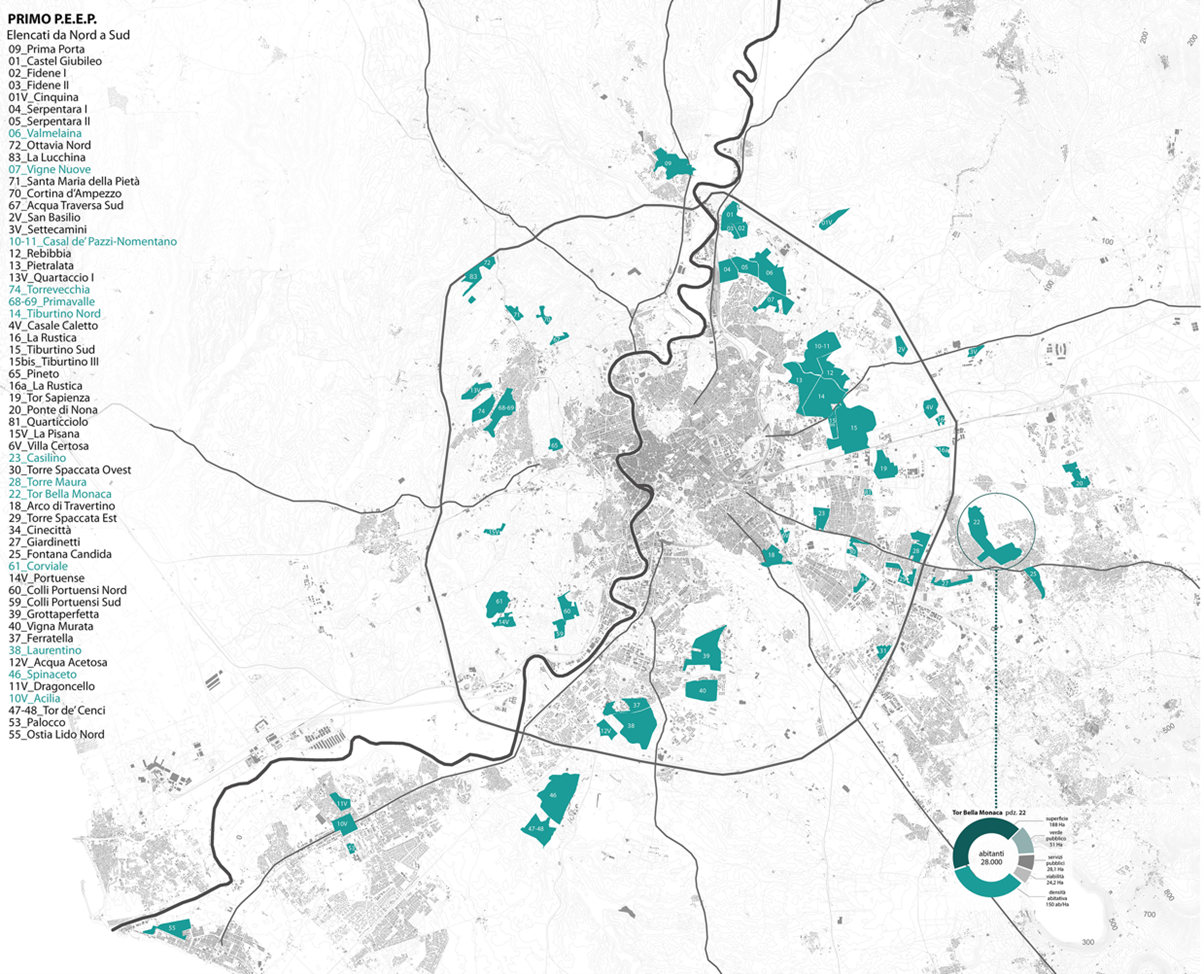Post-Covid Future Cities
Methods and Tools to Design and Assess, Healthy, Sustainable and Resilient Suburbs

Abstract
Il Covid-19 ha repentinamente, ma naturalmente, modificato il nostro modo di abitare e vivere la città. Allo shock della pandemia segue un futuro, già attuale, in cui è necessario ripensare velocemente l'assetto e il modo d'uso della casa e dello spazio pubblico in un contesto scientifico in cui, filoni di ricerca già ampiamente indagati, quali gli studi sul Progetto Ambientale, sugli Healthy Urban Environments e sul Climate Change, rinnovano la loro importanza.
Per questo, in coerenza con gli obiettivi e gli stanziamenti di Next Generation EU, la ricerca affronta il tema del recupero e della rigenerazione delle periferie urbane e, in particolare, dei grandi quartieri di Edilizia Economica e Popolare realizzati negli anni '70-'90 nei sobborghi delle maggiori città europee.
La ricerca, dunque, ha lo scopo di predisporre metodi e strumenti per il progetto di rigenerazione di queste periferie europee e indicatori di sostenibilità che consentano di valutare gli esiti delle trasformazioni.
Covid-19 has suddenly, but naturally, changed our way of inhabiting and experiencing the city. The shock of the pandemic is followed by a future, already present, in which it is necessary to quickly rethink the structure and the way of using the house and public space in a scientific context in which, already extensively investigated lines of research, such as studies on Environmental Project, on Healthy Urban Environments and on Climate Change, renew their importance.
For this reason, in line with the objectives and allocations of Next Generation EU, the research deals with the theme of the recovery and regeneration of urban suburbs and, in particular, of the large Economic and Popular Housing districts built in the 70s-90s in the suburbs of major European cities.
The research, therefore, has the aim of preparing methods and tools for the regeneration project of these European suburbs and sustainability indicators that allow to evaluate the results of the transformations.
Per questo, in coerenza con gli obiettivi e gli stanziamenti di Next Generation EU, la ricerca affronta il tema del recupero e della rigenerazione delle periferie urbane e, in particolare, dei grandi quartieri di Edilizia Economica e Popolare realizzati negli anni '70-'90 nei sobborghi delle maggiori città europee.
La ricerca, dunque, ha lo scopo di predisporre metodi e strumenti per il progetto di rigenerazione di queste periferie europee e indicatori di sostenibilità che consentano di valutare gli esiti delle trasformazioni.
Covid-19 has suddenly, but naturally, changed our way of inhabiting and experiencing the city. The shock of the pandemic is followed by a future, already present, in which it is necessary to quickly rethink the structure and the way of using the house and public space in a scientific context in which, already extensively investigated lines of research, such as studies on Environmental Project, on Healthy Urban Environments and on Climate Change, renew their importance.
For this reason, in line with the objectives and allocations of Next Generation EU, the research deals with the theme of the recovery and regeneration of urban suburbs and, in particular, of the large Economic and Popular Housing districts built in the 70s-90s in the suburbs of major European cities.
The research, therefore, has the aim of preparing methods and tools for the regeneration project of these European suburbs and sustainability indicators that allow to evaluate the results of the transformations.
PUBBLICAZIONI
Cangelli, E., Conteduca, M., (2023), L’eredità del Moderno. Prospettive per il recupero dell’edilizia residenziale pubblica / The Modernist Burden. Future perspectives for the renewal of the public housing heritage, Sapienza University Press, Roma, in stampa [giugno 2023]
ALTRI ESITI
Convegno “ROMA E/E’ LE SUE PERIFERIE. Il valore dei territori e lo sviluppo locale integrale”. Roma, 10 ottobre 2022 | Aula Magna del Rettorato, Sapienza Università di Roma
Workshop “QUARTACCIO REVAMP | MAINTAINING HOMES, ENGAGING PEOPLE”. Roma, 17 marzo 2023 | Sapienza, Valle Giulia
Workshop Internazionale “THE MODERNIST BURDEN. Future perspectives on a mass housing legacy of a past era. DESIGNING QUARTACCIO”. Rome 26-28 giugno 2023 | Sapienza, Valle Giulia
